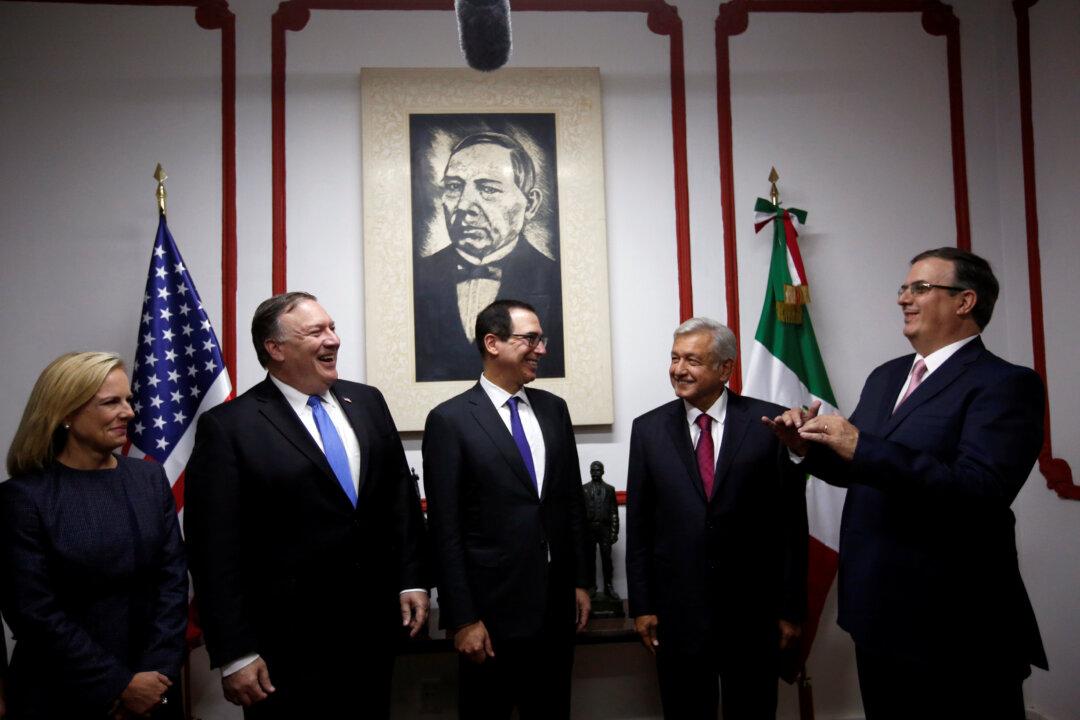A 30-minute phone conversation between President Donald Trump and Mexico’s newly elected, leftist president Andrés Manuel López Obrador seems to have opened a new chapter in the relationship between both countries. A delegation of Trump administration officials will meet with López Obrador on July 13 to continue the dialogue, sending positive signals for the ongoing NAFTA negotiations.
Senior White House adviser and Trump’s son-in-law Jared Kushner will meet López Obrador on July 13. Secretary of State Michael Pompeo, Treasury Secretary Steven Mnuchin, and Homeland Security Secretary Kirstjen Nielsen will be joining the meeting as well.





